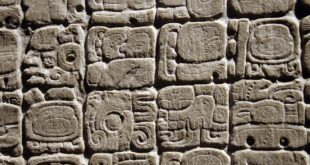The Fascinating World of Biological Anthropology
What is Biological Anthropology?
In today’s ever-evolving world, the term “Biological Anthropology” may sound familiar to some, or completely foreign to others. Nevertheless, it is undoubtedly something that we are all constantly surrounded by, being a crucial aspect of human biology.
At its core, Biological Anthropology is a fascinating branch of science that unravels the intricate mysteries of human identity. More specifically, this field of study explores the biological makeup and evolutionary history of humans and their ancestors, as well as similar species in the animal kingdom.
The Wonders of Human Evolution
A critical aspect of Biological Anthropology is the study of human evolution. This involves examining the various biological changes that evolved the earliest humans from prehistoric primate species over millions of years.
Thanks to new technology and scientific innovation, modern-day researchers are now able to make even more significant and awe-inspiring discoveries about the evolutionary process. It is incredibly awe-inspiring to think of how far we have come.
The Role of Culture in Biological Anthropology
Another essential aspect of Biological Anthropology is the importance it gives to culture in shaping human behavior and evolution. Culture encompasses all human behavior, communication, norms, values, traditions, language, socialization, etc.
Anthropologists investigate how all these cultural factors profoundly affect the structure of human communities: family, economy, social hierarchy, rituals, sports, agriculture, etc. Examining this unique connection between culture and biology is suitable for comprehending the diversity and complexity of human societies worldwide.
The Significance of Species Preservation in Biological Anthropology
Biological Anthropology is especially unique for its focus on the preservation of animal species and their natural habitats. This field uses a framework for ensuring the survival of not just endangered animal species, but also for maintaining the essential interdependent relationships between species.
This is because a closer look at the interface between humans, animals, culture, and the environment leads to an understanding of species-oriented conservation plans that help ensure the continuity of life forms on earth.
Conclusion
Biological Anthropology is an incredible and awe-inspiring field of study. What’s equally notable is the role it plays in shaping this world and its future. As we keep evolving with time, it will undoubtedly continue to lead to many exciting insights into our biological identity, enthrall us with interesting factoids, and deep down make us even more grateful for our intricate yet beautiful existence.
 Mind Uncharted Explore. Discover. Learn.
Mind Uncharted Explore. Discover. Learn.



